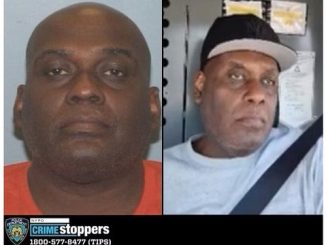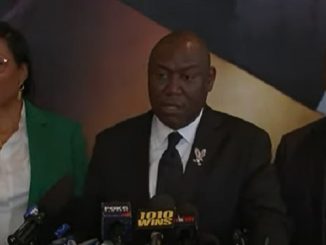
Some 30 murders committed in the city last year — including the sex assault and strangulation of jogger Karina Vetrano — might have been solved if police were allowed to use familial DNA searching, a top NYPD official says. Deputy Chief Emanuel Katranakis plans to make that point when he testifies next month before the state Commission on Forensic Science and its DNA subcommittee.
When DNA evidence does not yield a match from a database of known criminals, the material can be used as “familial evidence” and compared to other databases in hopes of finding partial matches with a suspect’s relatives.
Katranakis said of the 335 murders logged by the NYPD in 2016, unidentified DNA samples belonging to the killer were recovered in “about 10%” of the slayings — not to mention at the scenes of an untold number of rapes and other serious crimes. Katranakis credits Vetrano’s father, Philip Vetrano, a retired firefighter, with advocating for the use of familial DNA searching. But the chief, who heads the NYPD’s Forensic Investigations Division, said the benefits go far beyond one case. He said the 10 states that use the approach have solved a number of crimes. Those include the 2010 arrest of Lonnie Franklin Jr., the Grim Sleeper serial killer, since sentenced to death for killing nine women and a teenager in Los Angeles.
“This is a powerful investigative tool that we want made available to the NYPD and the public,” Katranakis said. “There is clearly a public need for the victims and the victims’ families to bring closure in some cases and to fight crime.”
Police recovered the killer’s DNA from Vetrano’s body, but the sample didn’t match anyone in the DNA databases of convicted criminals.
With familial DNA, investigators could theoretically find a relative whose DNA is on file — giving police a strong lead.
“I guarantee you that the first day that this is implemented somebody is going to be caught that has been out there hiding,” Philip Vetrano said. “Not just our case — other cases, too.”
It can also lead to “miscarriages of justice,” said Donna Lieberman, head of the New York Civil Liberties Union.
“A person’s constitutional rights against government invasion of their privacy cannot be suspended simply because a relative had come under suspicion,” she added.
But Katranakis said police already adhere to strict guidelines when conducting partial DNA match investigations, which experts say is not as effective as familial searching.
The commission and subcommittee likely won’t make a decision until weeks after the Feb. 10 hearing.
Vetrano is slated to speak — and will do so “as a father.”
“I’m not going to speak as a scientist,” he said. “I’m just going to speak for Karina.”
BY Edgar Sandoval Rocco Parascandola
Source www.nydailynews.com





Be the first to comment